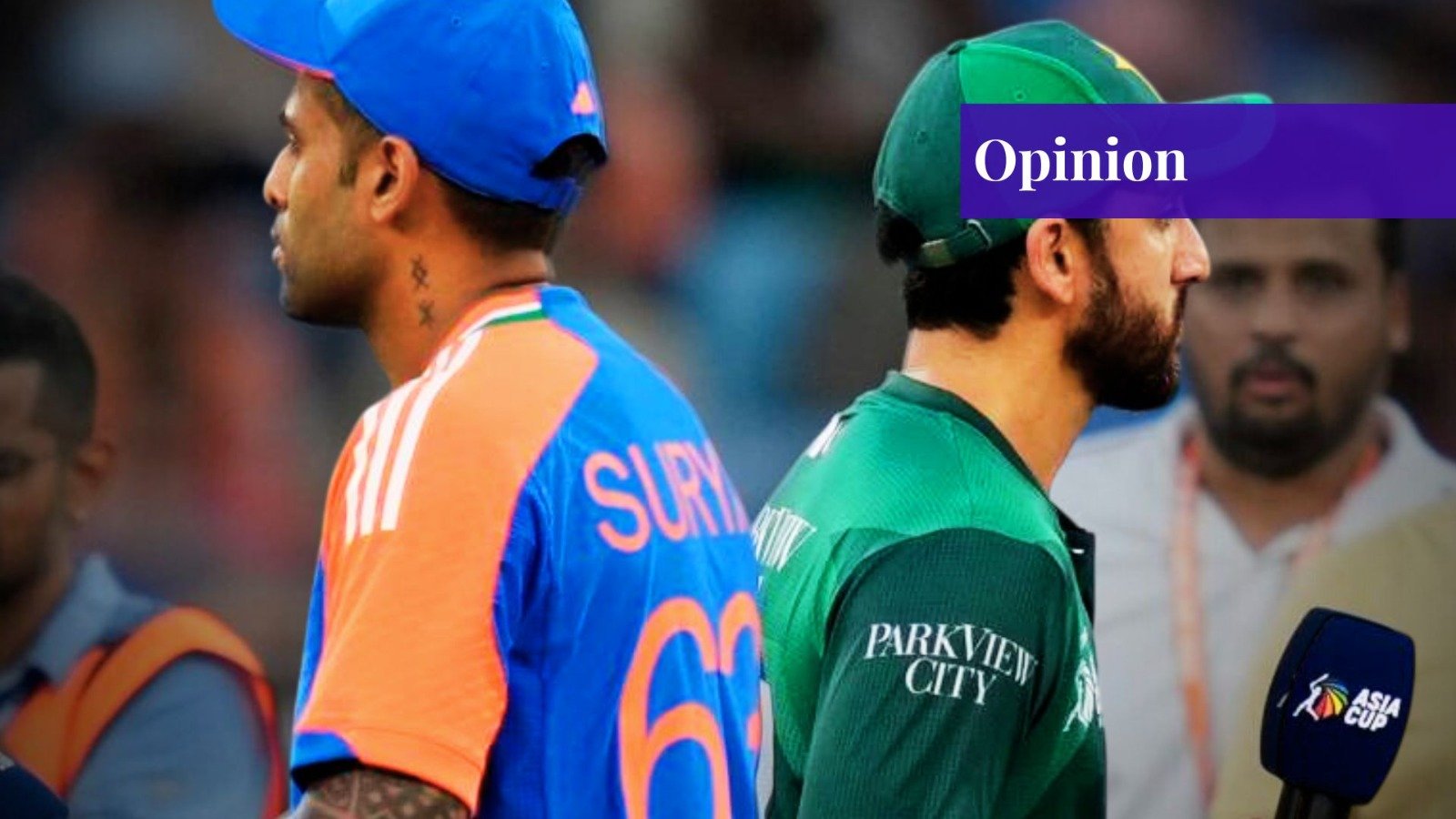There was a time when a cricket match could thaw what decades of diplomacy could not. Today, the loudest message between India and Pakistan is delivered not by bat or ball but by silence. In 1987, General Zia-ul-Haq crossed the border during the Brasstacks crisis, using the spectacle of a test match in Jaipur to ease a military confrontation. In 1999, even as soldiers faced each other on the icy heights of Kargil, Indian and Pakistani cricketers shared the field, a striking reminder of how sport once offered a parallel track to politics. Leaders spoke of winning hearts as well as matches, but this vocabulary of soft power belongs to an era long gone.
Of late, the tale of two cities is not about thrilling matches but about the matches that are never played. Bilateral tours that once opened the borders for fans now remain shut. Even tournaments where the two are bound to clash require hybrid models to keep them apart. This is a conscious recalibration of strategy, demonstrating a transformation in global politics where absence in itself becomes an instrument to exercise power. India’s refusal to shake hands is more about a policy choice instead of a diplomatic failure.
From handshake snubs to politicizing the field, India’s non-engagement with Pakistan is now a strategy.
The decoupling of cricket as a diplomatic bridge between India and Pakistan is not an isolated incident. It mirrors the geopolitical strategy of non-engagement, which is now being wielded as a tool in the political spheres worldwide. Washington and Beijing are disentangling supply chains, while Europe has cut cultural ties with Russia; its diplomatic recognition is being withheld as leverage. India has taken inspiration from this 21st-century playbook.
By enforcing that the matches shift out of Pakistan and supervising how matches take place, New Delhi is trying to set a new normal, while Pakistan is actively resisting it. The ICC’s decision to stage Indo-Pak matches at neutral venues through 2027 was a logistical compromise; it locked in India’s terms of engagement and denied Pakistan the symbolic legitimacy of hosting its biggest rival on home soil. The 2025 Champions Trophy proved to be the clearest example of this notion, where India refused to travel to Pakistan, forcing the clash to be moved to the UAE. Though it still drew over 230 million viewers and 26 billion minutes of watch time. These stats are enough to tell the revenue India generates courtesy of these matches. But the cricket field is no longer a neutral sporting space; it is an extension of foreign policy, where withholding play is itself a deliberate act of statecraft.
On the field, the 2025 Asia Cup was the epitome of what scholars might call protocol warfare: a series of low-cost, high-impact acts that communicate strategic intent without ever breaching tournament rules. From the very start, Indian players repeatedly refused pre- and post-match handshakes with their Pakistani counterparts. Captain Suryakumar Yadav skipped even the traditional greeting at the toss; a move widely interpreted as a state-advised gesture of non-recognition. Victories were dedicated to the armed forces, linking cricketing success directly to national security narratives and blurring the line between sport and state policy. Captain Suryakumar Yadav claimed in the post-match conference, “We play for our soldiers, for our people.”
The final brought this symbolic choreography to its sharpest point. After a five-wicket win, India declined to accept the trophy from Mohsin Naqvi, the PCB chairman and Asian Cricket Council President, forcing organizers to truncate the presentation ceremony. Viral videos showed players staging a mock celebration with an imaginary trophy. Pakistan Captain Salman Ali Agha described the behavior as, “If they think they disrespected us by not shaking hands, then I say they disrespected cricket.”
Such acts might seem trivial, but they carry significant diplomatic weight. In this new arena, non-recognition matters more than competition, and the field itself becomes an extension of foreign policy. In this feedback loop, state actions fuel nationalist narratives, which in turn legitimize further hardline decisions, making cricket’s absence not just a government stance but a popular demand.
Public reaction to the Asia Cup final shows how deeply foreign policy now shapes the language of sport. In India, the trophy snub and handshake refusals were celebrated not as breaches of etiquette but as deliberate displays of strength. Online, hashtags like #OperationSindoor and #BoycottAsiaCup amassed millions of views, and commentators portrayed non-engagement as strategic dignity, a refusal to grant Pakistan symbolic legitimacy. Prime Minister Narendra Modi’s description of the win as “Operation Sindoor on the games field” reframed it as a geopolitical statement. Thus, once popular opinion aligns with the logic of disengagement, backtracking becomes politically expensive, locking policy into a cycle of symbolic hostility.
India’s cricket strategy has evolved into a calibrated exercise in power projection. In contemporary geopolitics, power is no longer exercised only through engagement; it is often asserted through its calculated withdrawal. By doing all this, New Delhi is trying to position itself as the side that decides if, when, and how the rivalry will unfold. But this time, Pakistan refused to back down, reinforcing its own policy of not attacking but defending. Mohsin Naqvi, ACC Chief, took a jibe at Modi via Twitter while refusing to let someone else present the trophy to the Indian team. He said, “Dragging war into sports only exposes desperation and disgraces the very spirit of the game.”
Cricket, once a pause from politics, now reflects it. India’s non-engagement strategy and performative displays of strength have done more harm than good to the sentiments of the public, be it Pakistanis or Indians. Evoking nationalist sentiment under the guise of patriotism serves those in power more than the people it claims to represent. It is a convenient distraction that divides and obscures governance behind spectacle. Yet when political winds shift, so do the possibilities for dialogue, and what feels like a dead end today can quickly become an opening for renewed cooperation.
If you want to submit your articles and/or research papers, please visit the Submissions page.
To stay updated with the latest jobs, CSS news, internships, scholarships, and current affairs articles, join our Community Forum!
The views and opinions expressed in this article/paper are the author’s own and do not necessarily reflect the editorial position of Paradigm Shift.
Habiba is a content strategist, journalist, and editorial assistant with a background in English Literature from Government College University, Lahore. She writes on gender, policy, and cultural narratives with a focus on how colonial anxieties shaped South Asia.



